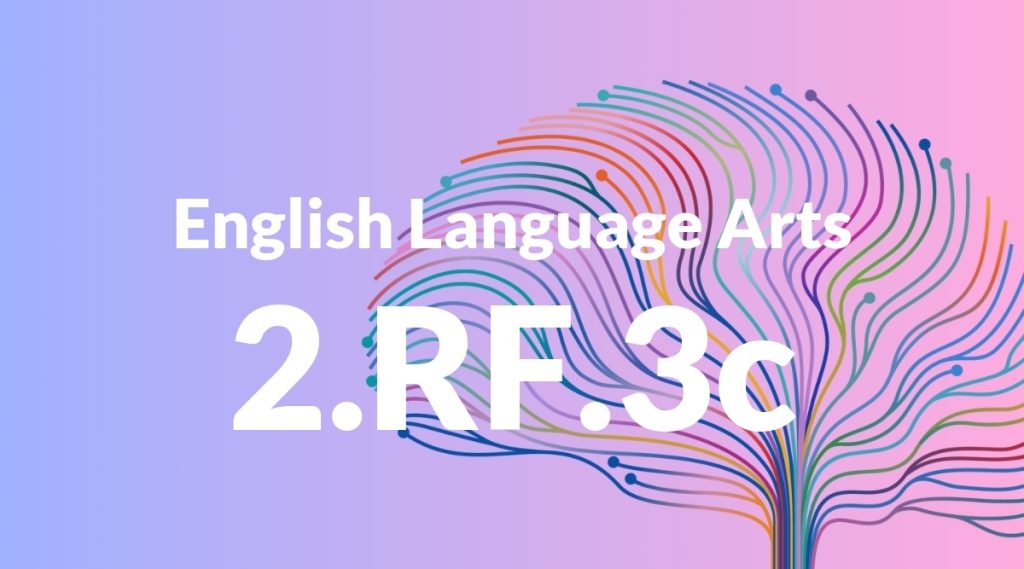Standard: 2.RF.3c – Decode regularly spelled two-syllable words with long vowels.
Grade level: Grade 2
Subject: English Language Arts
Domain: Reading: Foundational Skills
Teacher Overview
This standard focuses on helping students decode regularly spelled two-syllable words with long vowels, which is essential for developing reading fluency and comprehension. Mastery of this skill enables students to tackle more complex texts and improves their overall literacy. Students should be familiar with single-syllable word decoding and the distinction between long and short vowels. They should also have basic phonemic awareness skills.
After mastering this standard, students will be able to decode more complex multi-syllable words, enhancing their reading fluency and comprehension. This sets the stage for more advanced literacy skills in higher grades.
Common Misconception 1
A common misconception is that students may confuse long vowel sounds with short vowel sounds. This occurs because the difference can be subtle and requires careful listening and practice.
Intervention 1
An effective intervention is to use visual aids and phonics charts that clearly differentiate long and short vowel sounds. Incorporate listening exercises where students identify and sort words based on vowel sounds.
Common Misconception 2
Another misconception is that students might think all two-syllable words follow the same stress pattern. This can lead to incorrect pronunciation and misunderstanding of words.
Intervention 2
To address this, engage students in reading aloud activities with a variety of two-syllable words. Emphasize different stress patterns and use phonics games to reinforce correct pronunciation.
Prerequisite Knowledge
Students should be able to recognize and decode single-syllable words and understand the concept of long and short vowels.
Subsequent Knowledge
Students will develop the ability to decode more complex multi-syllable words and enhance their reading fluency and comprehension.
Instructional Activities
- Phonics sorting games with long and short vowels
- Interactive read-aloud sessions focusing on two-syllable words
- Word-building activities using letter tiles or cards
- Creating and illustrating a personal dictionary with two-syllable words
- Partner reading to practice decoding and fluency
- Using educational apps that focus on phonics and decoding skills




